When their 14-year-old son Joey was diagnosed with Stage II Hodgkin's Lymphoma last summer, Filipina Corpuz and her husband, Sgt. 1st Class Jude Corpuz, wondered what they were going to do.
Not only were they worried and devastated, they had another problem: the Corpuzes were stationed in Germany, far from family, friends and medical care for their son.
Within two days, father and son had been medevaced to Walter Reed Army Medical Center in Washington, traveling on the same plane as injured Soldiers, while Corpuz and her younger son organized their emergency move to the States.
After initial treatment at Walter Reed, Joey was transferred to Johns Hopkins Hospital in Baltimore for a bone-marrow transplant. Even after he was discharged, Joey had to remain within 10 minutes of the hospital. The Corpuzes' new duty station was an hour away. They didn't know where to turn.
That's where Believe in Tomorrow came in. Founded in 1982, the organization provides housing within walking distance of the hospital and amenities, and organizes fun, enticing activities for families of critically ill children, giving military families priority. It also has respite houses in the mountains and along the Maryland-Delaware coastline where families with sick children can go to relax and have a good time. One house in Ocean City, Md., and one under construction in the Asheville, N.C., area, are for military families exclusively.
"I have no greater admiration than for those men and women who are in the military and the hardships those families deal with," said Brian Morrison, founder and chief-executive officer of Believe in Tomorrow. "There was a desire to provide support to those families who support us and it became apparent that this was the right thing to do. It's not easy to see someone making all kinds of sacrifices in their lives, who, in addition, are also dealing with a child who is critically ill."
He added that in the past year, a number of the families Believe in Tomorrow served had fathers who were deployed. "It's hard enough for any family to have a child who's critically ill. That produces enormous stresses on the family and is a very draining experience. On top of that, having a dad or mom who's deployed really makes it a tremendous hardship."
According to family care manager Jackie Valderas, the hardest part of her job is deciding who gets to stay in the 32 spaces available for hospital housing. She makes the decision with the child's doctors and social workers (who usually refer the family to Believe in Tomorrow), and factors in their family situation, distance from home, diagnosis and treatment.
"We always have a long wait list and it's a frustrating job sometimes because you want to help everyone. That's why we're really committed to taking the most critical kids in the most life-threatening situations first and why we're constantly reevaluating families on a case-by-case basis of who really needs to be here the most and maybe which families are in the greatest crisis," she explained.
Maj. Ross Charton said he didn't even know about the military preference. No one said anything to him, but he did wonder how they managed to get in immediately after his seven-year-old son Luke was diagnosed with a brain tumor.
"Because military people are travelling from all around the country and are frequently dislocated from the type of support other people have via being embedded in communities, for Believe in Tomorrow to give them priority is phenomenal, not only at the hospitals, but in their retreat locations as well. Families are able to meet in a place and have some family time," Charton said.
Believe in Tomorrow provides kitchens complete with food pantries and utensils. Several times a week, community groups come by with family-style dinners. There are game and television rooms, and Believe in Tomorrow staffers frequently organize activities like movie nights and arts and crafts, or bring in massage therapists to help the patients and their parents relax.
They do whatever is necessary to help the families avoid day-to-day worries and annoyances. When the power at one of the houses went out for a day in September, for example, Morrison even went to pick up ice for Corpuz so she could keep her son's medicine cold.
"I'm glad that people think about these things," said Corpuz. "When you're in this kind of situation, you've never thought about it. 'What are we going to do'' I asked one of the nurses. 'How long is this going to be'' She said, '90 to 120 days.' 'Are you serious'' I said. 'I'm driving that much every day'' Parking before, when we stayed in the hospital for a week, was like $60. And then you have your gas. That's a lot of money that you can use somewhere else. That's a lot of convenience."
"I like it. It's kind of like a vacation home away from my own home. It's better than the hospital," said Joey, who added that the best part was that he could eat his mom's cooking and not hospital food. A tutor even came several times a week so Joey wouldn't fall behind in school.
Believe in Tomorrow made a tough situation much easier, said Charton, because he knew that after he dropped his wife Lisa and Luke off on Monday mornings (he then returned to work for the rest of the week), they would be taken care of until he returned.
"One of the great things about the Believe house was that there were other families there who were going through the same thing. It was tremendously helpful to our family to (avoid) the outlay and expense of a hotel. It was great that they had people who came in and provided food a couple of nights a week, because that alleviated expense. It was great that we had a kitchen to go to where we could prepare our own food so we didn't have to eat out all of the time, but the most important thing there was the support from seeing other families going through the same thing," said Charton.
Because Luke was in such bad shape, the Chartons weren't able to visit one of the respite facilities, but Believe in Tomorrow brought a vacation to them. The organization would frequently have tickets for the Baltimore Orioles, and drivers to take families out to attractions like the zoo, the National Aquarium or the Maritime Museum.
"The families oftentimes are so focused on hospital treatment that they don't vary from that," said Morrison. "But when they can, they're encouraged to get out for those breaks. Our staff is trained to recognize stress, recognize when families are in a position where they can do things and then kind of encourage those families to do that. Many of the families we serve aren't thinking of going to the aquarium. They aren't thinking of going to dinner. They really need to be kind of gently encouraged to do so. It takes their minds away from pain and stress."
He added that there's also plenty for families to do at the respite houses. Beyond just relaxing and enjoying the oceanfront or mountain scenery, families can enjoy meals at local restaurants, miniature golf, go carts, parasailing and surfing, all compliments of local businesses.
From the architecture to location to furnishings and paint colors, the houses are all designed to promote relaxation and help families and kids forget about doctors and hospitals. The short vacations can give families the strength to go on and face the next stages of treatment, Morrison explained.
One military family drove all the way from Texas to Maryland to visit one of the beach houses, which Morrison said highlights the need for respite housing nationwide. The organization wants to expand to other locations with large military populations such as the Texas coast, Florida panhandle, Arizona and Southern California.
"So our military initiative really is to make sure that we are providing the best service possible to military families and that we're getting them in very quickly, trying to avoid any waiting lists that occur in our facilities. And it's working very well. Our retreat facilities are full. They constantly have families from Walter Reed or from Portsmouth Naval Hospital or from other hospitals," he said.
For more information, visit Believe in Tomorrow's Web site at www.believeintomorrow.org.

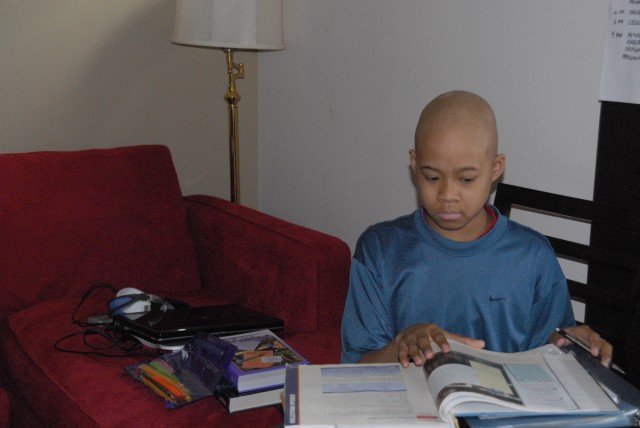
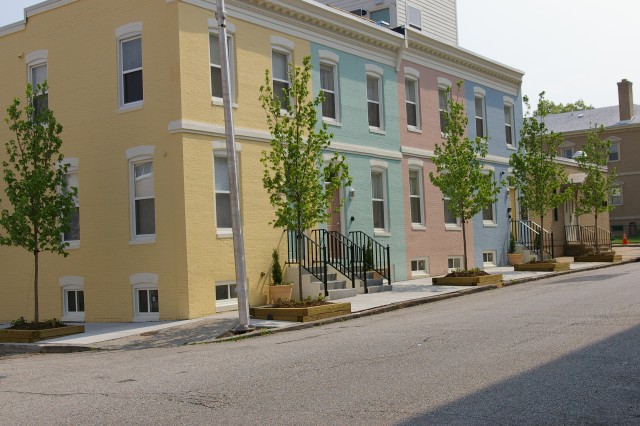

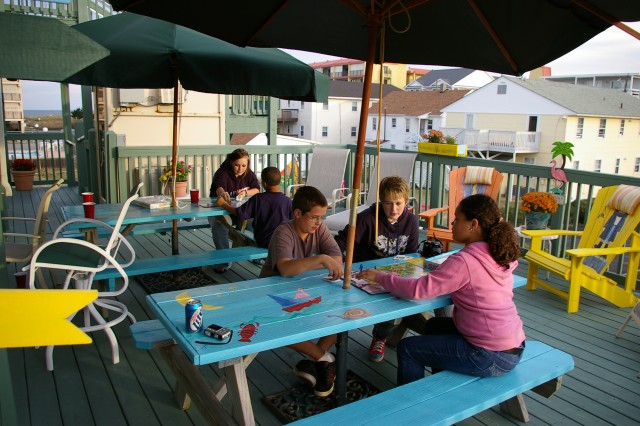



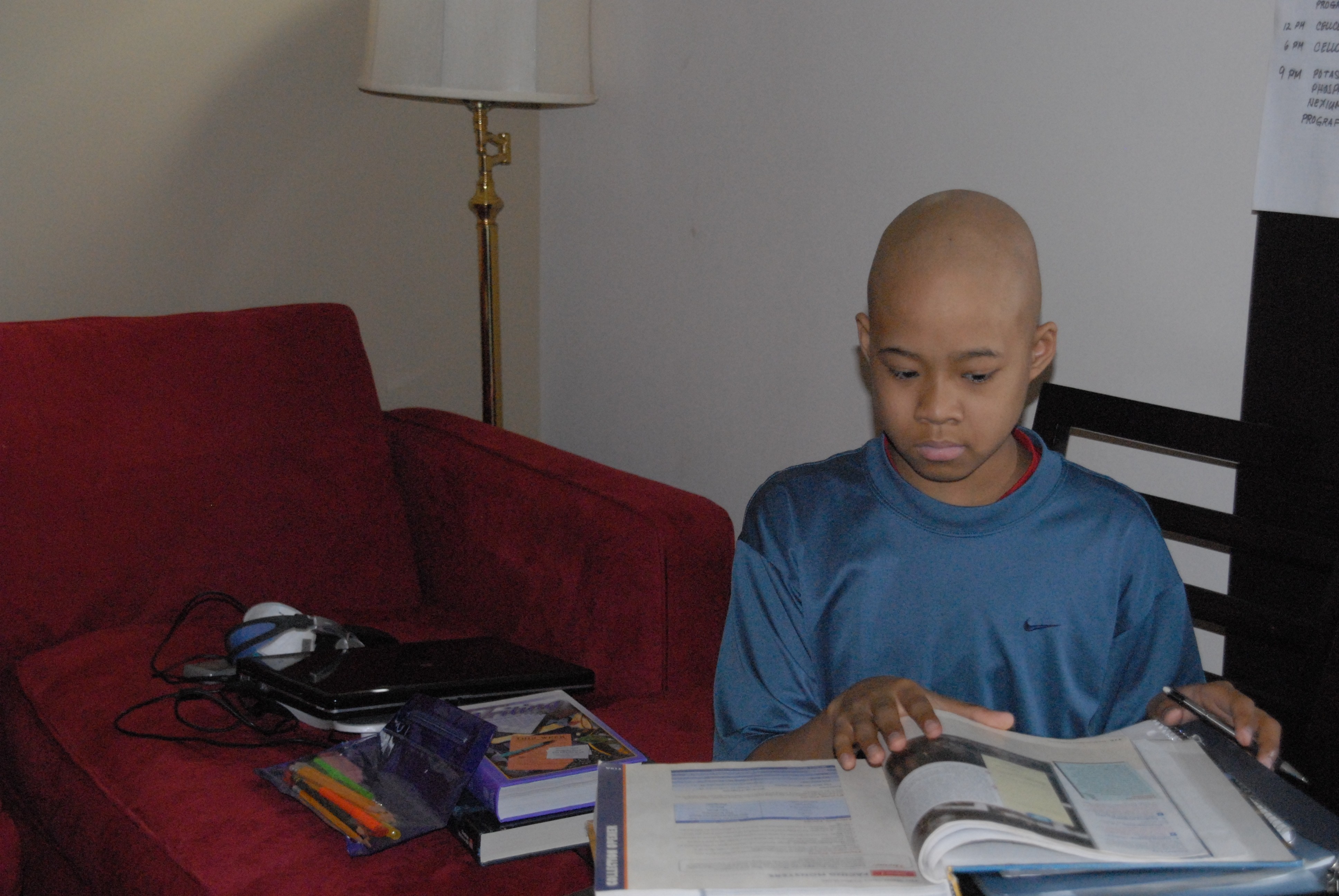
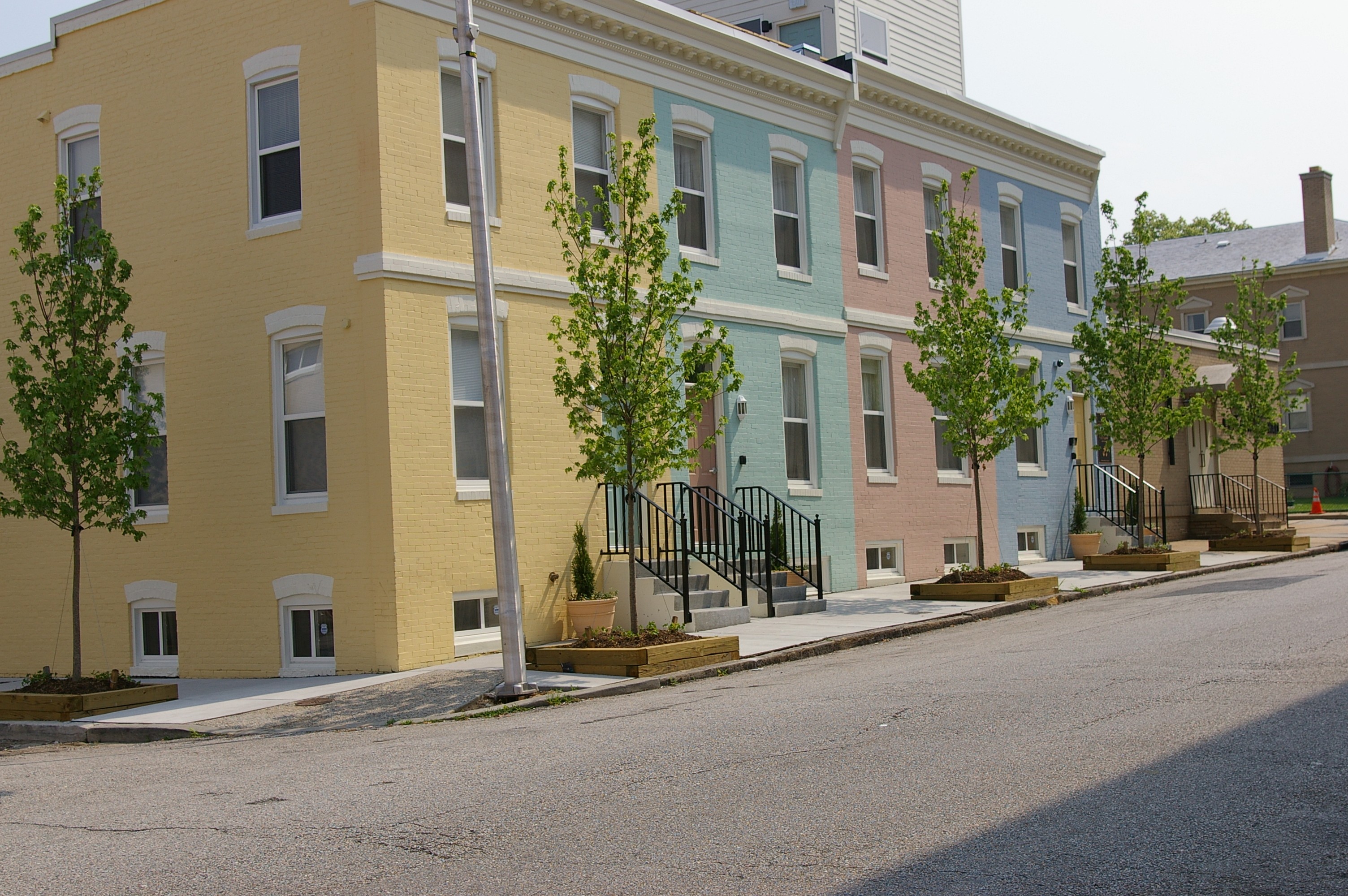

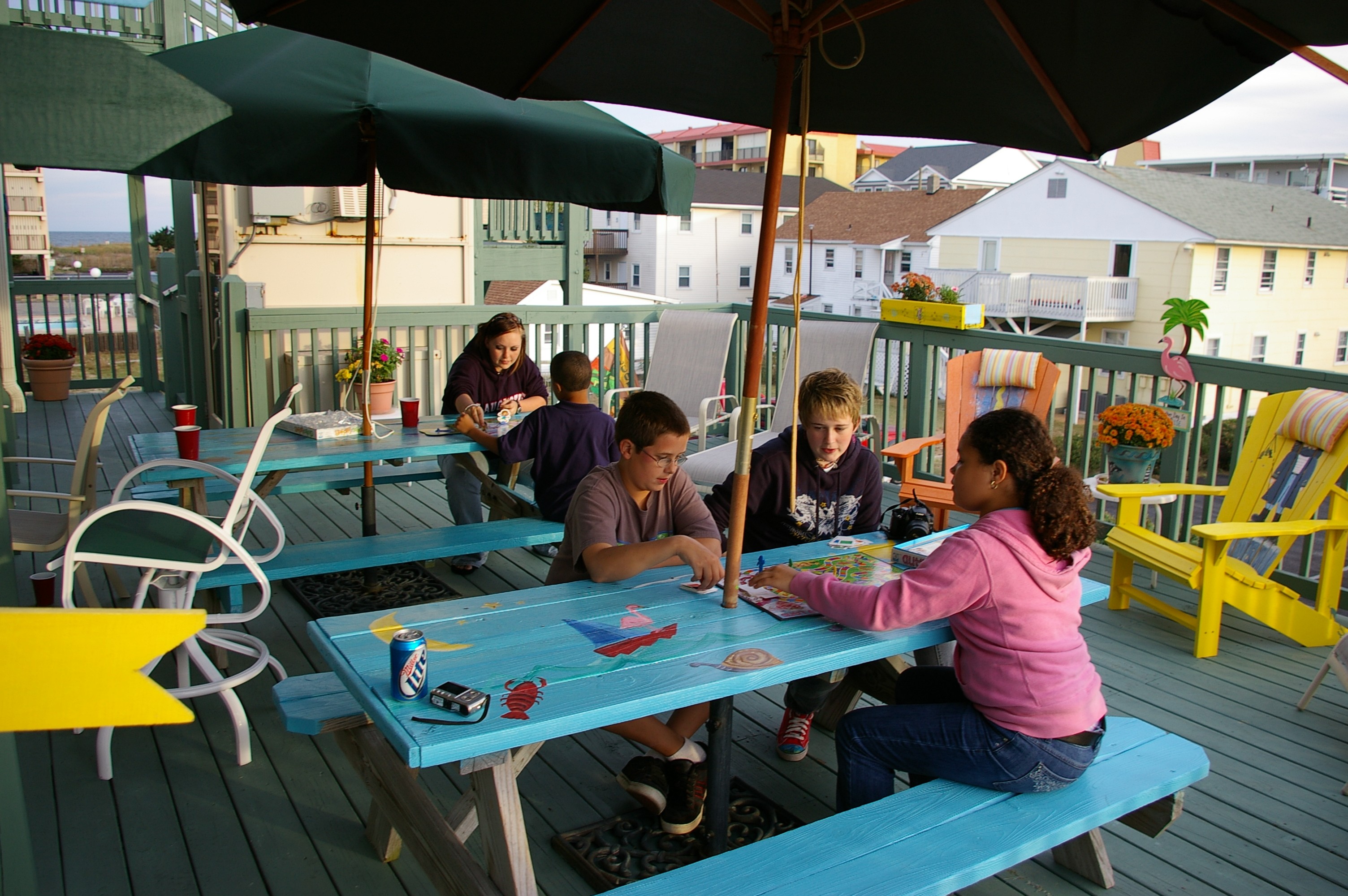


Social Sharing